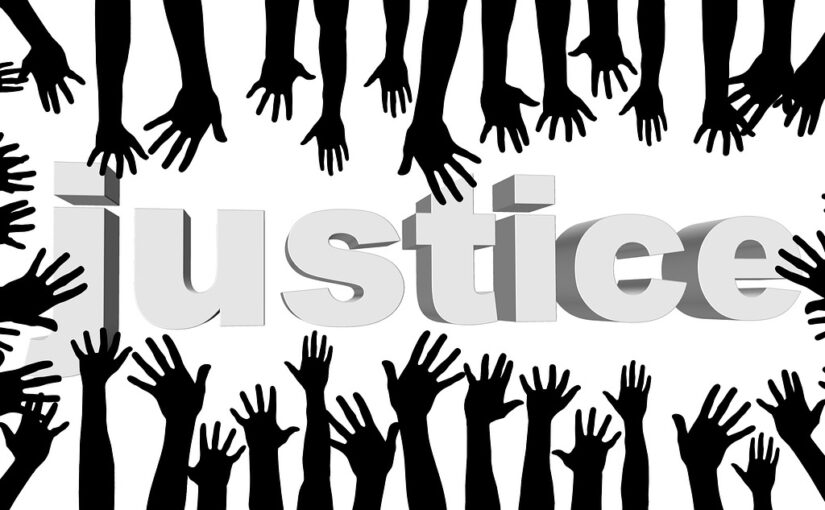Table of Contents
- Introduction
- Understanding Uncontested Divorce
- Advantages
- Initiating the Uncontested Divorce Process
- Key Considerations and Requirements
- Navigating Potential Challenges
- Finalizing the Uncontested Divorce
- Conclusion
Introduction
Uncontested divorce reflects cooperation and mutual understanding as we move through the process of separation. Defined by its reliance on amicable agreements rather than contentious courtroom battles, uncontested divorce offers couples a dignified path towards closure. Unlike contested divorces, which can prolong emotional strain and financial burden, this model prioritizes dialogue, compromise, and mutual respect. It is an approach rooted in the recognition that, despite the end of a romantic partnership, the bonds of respect and cooperation can endure, especially when children or shared assets are involved.
Understanding Uncontested Divorce
Spouses will work collaboratively to navigate the complexities of asset distribution, child custody arrangements, financial support, and other pertinent matters without the need for formal litigation. This collaborative approach fosters an atmosphere of mutual understanding and respect, enabling couples to create solutions that meet their unique circumstances and priorities.
At its core is the notion of effective communication and negotiation. Spouses are encouraged to engage in candid discussions, openly expressing their needs, concerns, and aspirations for the divorce process. By fostering an environment of transparency and empathy, couples can identify common ground and explore mutually beneficial resolutions.
Uncontested divorce is characterized by its streamlined legal process, instead of the reliance on the contentious framework of the courtroom. Uncontested divorce emphasizes collaborative problem-solving and alternative dispute resolution methods, such as mediation or arbitration.
Importantly, it recognizes the inherent dignity and autonomy of both parties, empowering them to take an active role in shaping the terms of their separation. By prioritizing mutual respect and cooperation, uncontested divorce encourages spouses to approach the dissolution of their marriage with empathy and compassion.
In essence, it is a holistic approach to marital dissolution, one that transcends the confines of legal formalities to prioritize the well-being and dignity of all parties involved. By embracing the principles of cooperation, transparency, and mutual respect, couples can navigate the complexities of divorce with grace and integrity, laying the groundwork for a smoother transition to new beginnings.
Advantages
Uncontested divorce offers a multitude of advantages that are attractive to couples seeking a smoother and more dignified path to dissolution.
One of the most compelling advantages of uncontested divorce lies in its cost-effectiveness. By avoiding the possible lengthy legal battles and contentious court proceedings typical of contested divorces, couples can significantly reduce their legal expenses. Without the need for extensive litigation, attorney fees, court costs, and related expenses couples are able to use their financial resources more judiciously, especially during a time of transition and potential financial strain.
Time is of the essence in any divorce process, and uncontested divorce offers a swifter resolution compared to its contested counterpart. By circumventing the lengthy legal procedures and courtroom delays characteristic of contested divorces, couples can speed up the resolution process and move forward with their lives more promptly. This accelerated timeline not only minimizes emotional strain but also allows individuals to begin the process of healing and rebuilding sooner rather than later.
Divorce is inherently emotional, but by opting for an amicable resolution, couples can reduce conflict and animosity, fostering a more cooperative and respectful environment throughout the divorce process. This reduction in emotional stress benefits not only the spouses but also any children involved, minimizing the trauma and upheaval often associated with adversarial divorces.
An amicable divorce prioritizes collaboration and mutual respect, thereby preserving relationships to the greatest extent possible. By engaging in constructive dialogue and reaching agreements outside of the courtroom, couples can maintain a level of civility and cooperation that lays the groundwork for post-divorce relationships, particularly in cases where co-parenting is involved. This emphasis respectful communication creates a healthier dynamic, benefiting all parties involved, especially children, who can continue to have meaningful relationships with both parents.
One of the most empowering aspects of uncontested divorce is the level of control it gives to the divorcing parties. Rather than placing the outcome of important decisions in the hands of a judge, couples maintain control over important aspects of the divorce settlement, including child custody arrangements, division of assets, and spousal support agreements. This sense of control allows couples to tailor solutions that meet with their circumstances and priorities, creating a sense of ownership and satisfaction with the outcome.
The advantages of an uncontested divorce extend far beyond a more streamlined approach. They include financial savings, time efficiency, emotional well-being, relationship preservation, and autonomy—all of which contribute to a more dignified and constructive transition for couples navigating the complexities of marital dissolution. By embracing the principles of cooperation and mutual respect, couples can embark on a journey towards closure and renewal, laying the groundwork for a brighter future beyond the confines of divorce.
Initiating the Uncontested Divorce Process
Initiating an uncontested divorce represents the initial step towards amicable dissolution, emphasizing open communication and collaborative efforts between spouses. This phase sets the tone for the entire divorce process, laying the groundwork for constructive dialogue and mutual understanding.
Effective communication serves as the cornerstone of the initiation. Spouses must engage in candid discussions to express their respective needs, concerns, and expectations regarding the divorce proceedings. Creating an atmosphere of transparency and honesty fosters a conducive environment for negotiation and compromise.
Seeking early legal guidance is essential for understanding the legal implications of divorce and navigating the complexities of the process. Consulting with experienced divorce attorneys provides spouses with valuable insights into their rights, obligations, and available options. Legal professionals can offer guidance on state-specific laws, procedural requirements, and documentation necessary for filing an uncontested divorce.
The initiation involves drafting comprehensive settlement agreements that outline the terms and conditions of the divorce. These agreements typically address critical issues such as property division, child custody, visitation schedules, child support, and spousal maintenance.
Once agreements have been reached, spouses must proceed with filing the necessary documentation. This typically involves preparing and submitting various legal forms and affidavits to the appropriate court jurisdiction. Working with legal professionals ensures that all required paperwork is accurately completed and filed within the stipulated timelines, expediting the divorce process.
In some cases, spouses may opt for mediation or alternative dispute resolution methods to facilitate the process. Mediation involves the involvement of a neutral third-party mediator who assists spouses in reaching mutually acceptable agreements. Through facilitated discussions and negotiation, mediation can help resolve disagreements and streamline the divorce process without resorting to litigation.
By embracing these steps, spouses can initiate the uncontested divorce process with clarity, cooperation, and a commitment to achieving a mutually satisfactory resolution. Through open communication, collaborative negotiation, and legal guidance, couples can navigate the complexities of divorce with dignity and respect, paving the way for a smoother transition and a new chapter in their lives.
Key Considerations and Requirements
Navigating this landscape requires careful attention to key considerations and requirements to ensure a fair and equitable resolution. Addressing these aspects thoughtfully lays the groundwork for a smooth transition and fosters an environment of cooperation and understanding between spouses.
A fundamental consideration is the equitable distribution of marital assets and liabilities acquired during the course of the marriage. Spouses must engage in transparent discussions to identify and fairly allocate assets such as real estate, investments, retirement accounts, vehicles, and personal belongings. Debts and financial obligations must also be addressed in a manner that ensures both parties assume their fair share of responsibility.
For couples with children, establishing child custody and support arrangements is of highest priority. Both parents should put first the best interests of the children and work collaboratively to develop a parenting plan that promotes stability, consistency, and the child’s emotional well-being. Factors such as the child’s age, developmental needs, and parental involvement are carefully considered in crafting custody and visitation schedules. Additionally, determining child support obligations involves calculating financial support based on specific guidelines and the respective incomes of both parents.
Spousal support may also be a consideration in uncontested divorce cases where one spouse requires financial assistance following the dissolution of the marriage. The determination of spousal support takes into account various factors, including the duration of the marriage, the standard of living established during the marriage, each spouse’s earning capacity, and financial needs. Negotiating spousal support arrangements allows spouses to reach agreements that are fair and reasonable based on their individual circumstances.
Uncontested divorce requires careful consideration of retirement accounts and pension plans accumulated during the marriage. These assets are subject to equitable distribution, and spouses must work together to determine how retirement savings will be divided fairly. Understanding the tax implications, withdrawal restrictions, and valuation methods associated with retirement assets is essential in crafting settlements that protect the financial well-being of both parties in the long term.
In addition to asset division, addressing outstanding debts and financial obligations incurred during the marriage is important. Debts such as mortgages, credit card balances, student loans, and other liabilities must be allocated fairly between spouses. Clear communication and documentation of existing debts are crucial in ensuring that both parties assume their share of financial responsibility and avoid future disputes. It is in these circumstances that a prenuptial agreement, if one was arranged, further hastens the process.
The uncontested divorce process requires the preparation and filing of legal documentation to formalize the agreements reached between spouses. This typically includes drafting a comprehensive divorce settlement agreement outlining the terms and conditions of the divorce, which is submitted to the court for approval. Additionally, spouses may need to complete various forms, affidavits, and financial disclosures as required by law and court procedures.
By addressing these key considerations and requirements, spouses can navigate the this process with clarity, transparency, and mutual respect. Through open communication, collaborative negotiation, and adherence to legal formalities, couples can achieve a fair and amicable resolution that paves the way for a smoother transition and the pursuit of new beginnings.
Navigating Potential Challenges
While uncontested divorce offers numerous advantages, couples may encounter a range of challenges along the journey towards dissolution. Addressing these potential obstacles with patience, empathy, and open communication is crucial to achieving a fair and equitable resolution.
In some cases, power imbalances may exist within the dynamics of the marriage, complicating negotiations and hindering the progress towards a mutually satisfactory resolution. Imbalances in financial resources, decision-making authority, or emotional dynamics can create challenges in achieving a fair distribution of assets and liabilities. Recognizing and addressing these imbalances through open dialogue, mediation, or the involvement of legal counsel can help level the playing field and facilitate more equitable negotiations.
Couples with complex financial portfolios, including investments, business interests, or substantial assets, may face added complexities in dividing marital property. Valuing and dividing these assets requires careful consideration and expertise to ensure a fair and equitable distribution. Additionally, addressing significant debts or financial obligations can further complicate the divorce process. Seeking the guidance of financial advisors, appraisers, or legal experts specializing in complex asset division can help navigate these challenges and facilitate informed decision-making.
Achieving a sense of fairness and equity requires transparency, compromise, and a commitment to mutual respect. Spouses must be willing to engage in honest discussions and negotiate in good faith to reach agreements that consider the needs and interests of both parties. Ensuring that each spouse’s concerns are heard and addressed fosters a collaborative atmosphere conducive to reaching mutually acceptable resolutions.
By acknowledging and proactively addressing potential challenges, couples can navigate the uncontested divorce process with clarity, compassion, and cooperation. Through open communication, flexibility, and a commitment to finding common ground, spouses can overcome obstacles and achieve a fair and amicable resolution that sets the foundation for a positive post-divorce relationship and the pursuit of new beginnings.
Finalizing the Uncontested Divorce
Finalizing an uncontested divorce marks the culmination of a journey characterized by cooperation, compromise, and mutual respect. This phase involves formalizing agreements reached during the negotiation process and obtaining court approval to dissolve the marriage. By adhering to legal procedures and fulfilling all necessary requirements, couples can conclude the divorce process and embark on new chapters in their lives.
The finalization of an uncontested divorce requires obtaining court approval for the agreed-upon terms and conditions outlined in the divorce settlement agreement. Spouses must submit the necessary documentation, including the settlement agreement and any supporting paperwork, to the appropriate court jurisdiction. Once filed, the court reviews the agreement to ensure compliance with local laws and the best interests of any children involved.
In preparation for finalization, spouses must ensure that all required legal documentation is accurately completed and submitted to the court. This typically includes drafting and signing the divorce settlement agreement, which outlines the terms of the divorce, including property division, child custody and support arrangements, spousal maintenance, and any other relevant provisions. Additionally, spouses may need to complete various forms, affidavits, and financial disclosures as required by state laws and court procedures.
Depending on the jurisdiction, an uncontested divorce may require a brief court hearing or review to finalize the divorce decree. During the hearing, spouses may be required to testify under oath to affirm the voluntary nature of the agreement and their understanding of its terms. The judge may also inquire about the welfare of any minor children involved and ensure that custody and support arrangements are in their best interests.
Upon court approval and the issuance of the divorce decree, spouses are legally bound to adhere to the terms and conditions outlined in the settlement agreement. Implementing these agreements may involve transferring ownership of assets, adjusting financial arrangements, updating beneficiary designations, and fulfilling other obligations specified in the divorce decree. Both parties are responsible for upholding their respective commitments and fulfilling their obligations in a timely manner.
Following the finalization, spouses may need to make adjustments to their living arrangements, financial affairs, and personal relationships. This transitional period requires patience, resilience, and a willingness to adapt to new circumstances. Establishing clear lines of communication and maintaining a cooperative attitude can help facilitate the transition and mitigate potential conflicts as both parties adjust to their post-divorce lives.
The finalization of an uncontested divorce marks the beginning of a new chapter in the lives of both spouses. While the divorce process may have been challenging, it also represents an opportunity for growth, healing, and renewal. By focusing on self-care, personal development, and positive relationships, individuals can embrace the opportunity for a fresh start and move forward with optimism and resilience.
Conclusion
In the world of marital dissolution, uncontested divorce stands as a beacon of cooperation, dignity, and mutual respect. Throughout the journey towards amicable separation, couples navigate a landscape characterized by open communication, compromise, and a shared commitment to reaching equitable resolutions. As the divorce process concludes, it leaves in its wake a foundation upon which individuals can build new beginnings and embrace the possibilities of the future.
By prioritizing collaboration over conflict, spouses foster an environment conducive to healing and renewal. Through transparent negotiations and thoughtful consideration of each other’s needs and interests, couples lay the groundwork for a post-divorce relationship rooted in mutual respect and cooperation.
The advantages of uncontested divorce are many. From its cost-effectiveness and time efficiency to its ability to minimize emotional stress and preserve relationships, uncontested divorce offers couples a dignified alternative to protracted legal battles. By empowering spouses to take control of their futures and make decisions that reflect their unique circumstances, uncontested divorce sets the stage for a smoother transition and a brighter tomorrow.
As couples embrace new beginnings, these principles serve as a guiding light. By embracing the lessons learned and the growth experienced throughout the divorce process, individuals can emerge stronger, wiser, and more resilient. Through self-care, personal development, and a commitment to positive relationships, individuals can chart a course towards a future filled with hope, possibility, and fulfillment.
In the final analysis, uncontested divorce represents more than the end of a marriage—it symbolizes the beginning of a new chapter in life’s journey. By embracing the principles of cooperation, compassion, and mutual understanding, couples can navigate the challenges of divorce with grace and dignity. As they embark on new adventures and pursue new dreams, they carry with them the lessons learned and the bonds forged during their journey towards amicable separation. And in doing so, they discover that the end of one chapter is merely the prelude to an even more beautiful story yet to unfold.
